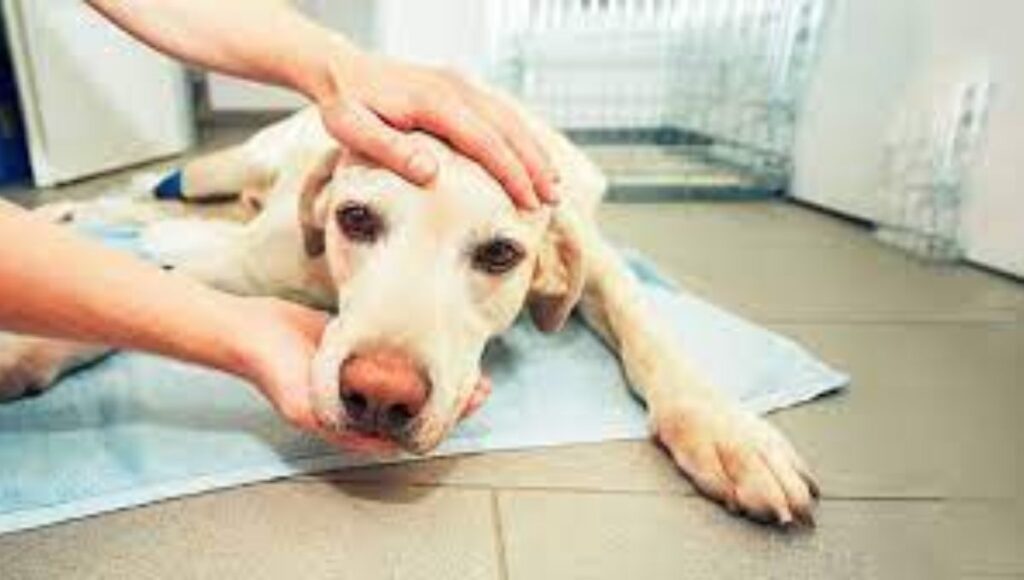French Bulldogs Healthcare: Complete Guide for a Healthy Pet
French Bulldogs are popular dogs known for their cute bat ears and friendly personalities. They need special care to stay healthy. Because they can have specific health problems, owners should take charge of their healthcare. This guide will explore important topics about French Bulldogs healthcare, including common issues, preventive care, diet, exercise, and more.
Understanding the Unique Health Needs of French Bulldogs
French Bulldogs are a brachycephalic breed meaning they have a short nose and flat face, which makes them look unique. However, this feature can lead to health problems. Understanding these traits is important for taking good care of your dog.
Common Health Problems in French Bulldogs

Brachycephalic Airway Syndrome (BAS)
French Bulldogs have flat faces, which can make it hard for them to breathe, especially in hot or humid weather. Brachycephalic Airway Syndrome (BAS) can cause snoring, trouble breathing, and difficulty exercising. In serious cases, surgery may be needed to help them breathe better. As an owner, keep an eye on your Frenchie’s breathing, especially during exercise or in warm conditions.
Hip Dysplasia
French Bulldogs often have hip dysplasia, a genetic problem where the hip joint doesn’t fit well in the socket. This can lead to pain and trouble moving. Regular vet check-ups and keeping a healthy weight can help manage or prevent this issue.
Allergies
Skin allergies are a common issue in French Bulldogs. They can be caused by things in the environment, like pollen, dust mites, or certain foods. Symptoms include itching, redness, and skin infections. A vet can find the cause and suggest treatments or changes to their diet.
Spinal Issues (Hemivertebrae)
The Frenchie has a short, stocky body, which can lead to spinal problems like hemivertebrae, where the vertebrae are shaped improperly. This can cause mobility issues or paralysis. Watch your dog’s posture and movement closely. Finding problems early can help with treatment.
Eye Problems
French Bulldogs have big eyes, making them prone to problems like cherry eye, cataracts, and corneal ulcers. Check your dog’s eyes often for redness, discharge, or cloudiness. If you see any changes, talk to a vet.
Obesity
Obesity is a common problem for French Bulldogs because they often overeat. An overweight Frenchie can face many health issues, like joint problems and heart disease. It’s important to manage their diet and exercise to keep them healthy.
Preventative French Bulldogs

Preventing problems is better than fixing them later. Regular vet visits and daily care can greatly improve your French Bulldog‘s quality of life.
Routine Vet Visits
Regular vet check-ups are important. They help find health problems early, like dental issues or serious conditions such as heart disease. Try to schedule at least one check-up each year, or more often if your dog has a health issue.
Vaccinations and Parasite Prevention
It’s important to keep your French Bulldog’s vaccinations current. Core vaccines protect them from serious diseases like rabies, parvovirus, and distemper. Also, use prevention methods for fleas, ticks, and heartworms to protect your dog from these common pests.
Dental Care
Dental disease can affect many small dog breeds, like French Bulldogs. Regularly brushing your dog’s teeth and getting routine dental cleanings from the vet can help prevent problems such as plaque, gum disease, and tooth loss.
Diet and Nutrition for French Bulldogs

A balanced diet is important for your French Bulldog’s health. Giving them the right nutrients helps prevent obesity, keeps their energy up, and lowers the risk of health issues related to diet.
High-Quality Dog Food
Choose high-quality dog food that is rich in protein, healthy fats, and important vitamins. Select formulas made for small breeds, as they have the right nutrients and calories for your Frenchie’s size.
Portion Control
Overfeeding is a common problem for French Bulldogs. Follow the portion sizes recommended by your vet or the dog food brand. Use measuring cups or scales to make sure your dog gets the right amount of food.
Special Diets for Allergies
If your French Bulldog has food allergies, your vet might suggest a hypoallergenic or limited ingredient diet. Common allergens for dogs are chicken, beef, and grains. A special diet can help reduce symptoms like itching and stomach problems.
Exercise and Activity Levels for French Bulldogs

French Bulldogs are stocky but active dogs that need regular exercise to stay healthy. However, their breathing problems require you to be careful about how much and what kind of exercise they do.
Short, Regular Walks
French Bulldogs can easily get too hot and have trouble breathing. It’s best to take them on short, regular walks instead of long, hard ones. Try to take two walks of 20-30 minutes each day, changing the length based on how your dog feels.
Indoor Playtime
Playing indoor games like fetch or tug-of-war with your Frenchie keeps them active without stressing their breathing. Puzzle toys can also help them think and stay active.
Avoid Extreme Temperatures
French Bulldogs have short noses due to their brachycephalic nature, which makes it hard for them to handle heat. Always provide shade and water when they are outside, and avoid exercising them during the hottest times of the day.
Grooming and Hygiene

Keeping your French Bulldog clean and well-groomed helps them look great and prevents infections and health problems.
Bathing
French Bulldogs only need a bath about once a month. Use a gentle dog shampoo to keep their skin from drying out. After the bath, make sure to dry them well, especially in the skin folds, to prevent moisture buildup and infections.
Cleaning Skin Folds
French Bulldogs have skin folds, especially on their faces. These folds can hold moisture, food, and dirt, which can cause irritation or infections. Clean these folds often with a damp cloth and make sure they are completely dry afterward.
Nail Trimming and Ear Cleaning
Trim your dog’s nails regularly to avoid discomfort or injury. If you hear clicking sounds when they walk, it’s time for a trim. Also, French Bulldogs have sensitive ears that need cleaning with a vet-recommended solution to prevent infections.
Conclusion
To keep your French Bulldogs healthy, you need to take action. This means regular vet visits, good nutrition, and proper exercise. Knowing common health issues like breathing problems and skin issues helps you get help quickly. Keeping your dog at a healthy weight is also important to avoid obesity. By creating a loving home and learning about their needs, you can improve your pet’s life. Remember, taking care of your French Bulldogs now will lead to many happy years together, so make that vet appointment soon!
FAQs
1. What are common health issues in French Bulldogs?
Common health issues include brachycephalic airway syndrome, hip dysplasia, skin allergies, and ear infections.
2. How often should I take my French Bulldog to the vet?
It’s recommended to take your French Bulldog for a check-up at least once a year, or more frequently if they have existing health concerns.
3. What vaccinations do French Bulldogs need?
They need core vaccinations like rabies, distemper, parvovirus, and optional ones such as Bordetella and canine influenza.
4. How can I maintain my French Bulldog’s dental health?
Regular tooth brushing, dental chews, and professional cleanings at the vet will help keep their teeth healthy.
5. Are there specific dietary needs for French Bulldogs?
Yes, they require a balanced diet that is high in protein but low in fat due to their predisposition to obesity. Consult your vet for tailored advice.
6. What is the best way to exercise my French Bulldog?
Short and gentle walks are ideal since they can overheat easily; aim for 15-30 minutes of exercise daily while avoiding strenuous activities in hot weather.
7. How can I tell if my French Bulldog is in pain or discomfort?
Signs include whining, lethargy, changes in appetite or behavior, difficulty moving around, or excessive panting.
8. Should I consider pet insurance for my French Bulldog?
Absolutely! Given their potential health issues, pet insurance can help cover unexpected medical expenses and ensure access to necessary care.







